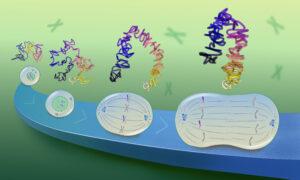
How chromosomes shape up for cell division
EMBL scientists have shown how overlapping loops of DNA stack upon each other in dividing cells to give rise to rod-shaped chromosomes.
SCIENCE & TECHNOLOGY2025
science-technology

EMBL scientists have shown how overlapping loops of DNA stack upon each other in dividing cells to give rise to rod-shaped chromosomes.
SCIENCE & TECHNOLOGY2025
science-technology
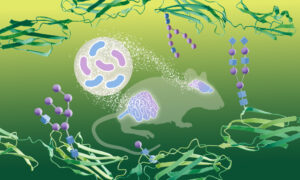
Scientists have discovered that gut bacteria can alter molecular signatures in the brain, using a brand new method to study how carbohydrates modify proteins.
SCIENCE & TECHNOLOGY2025
science-technology

EMBL and its partners have received funding from the European Commission for two new Twinning Projects, which will build expertise and research capacity in its member states.
CONNECTIONS2024
connections

New Head of the Microbial Automation and Culturomics Core Facility discusses her career, her goals for the facility, and her early inspirations.
PEOPLE & PERSPECTIVES2024
people-perspectives

Lennart Philipson Award recipient Giulio Superti-Furga discusses the scientific achievements he's most proud of, the importance of entrepreneurship, and why he had his personal genome sequenced.
PEOPLE & PERSPECTIVES2024
people-perspectives
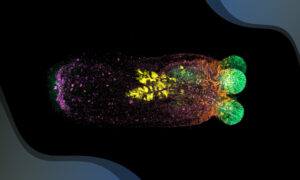
Scientists have shown how regenerating sea anemones restore their shape following a major injury, uncovering novel cellular and molecular mechanisms.
SCIENCE & TECHNOLOGY2024
science-technology
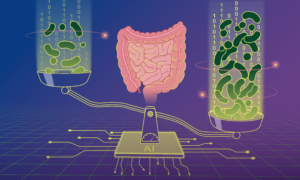
Scientists have developed a new machine-learning model to predict microbial load — the density of microbes in our guts — and used it to demonstrate how microbial load plays an important role in disease-microbiome associations.
SCIENCE & TECHNOLOGY2024
science-technology
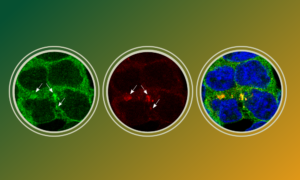
Scientists have discovered how the antiviral protein TRIM25 finds and binds viral RNA to activate an innate immune response.
SCIENCE & TECHNOLOGY2024
science-technology
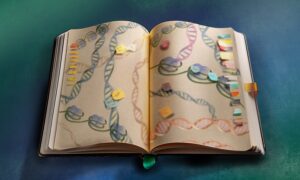
Researchers have identified key cellular control sites that regulate gene expression and prevent the activation of ancient viral sequences in the genome.
SCIENCE & TECHNOLOGY2024
science-technology

PROMETHEUS is an EMBL-born grassroots initiative to promote and optimise impact-driven science.
PEOPLE & PERSPECTIVES2024
people-perspectives
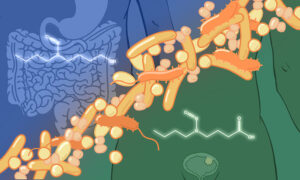
Study shows that gut bacteria can metabolise carcinogens and cause them to accumulate in distant organs, leading to tumour development.
SCIENCE & TECHNOLOGY2024
science-technology
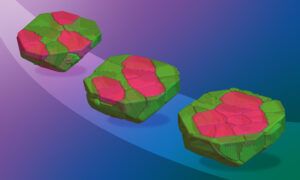
A theoretical model involving tiny Minecraft-like cubes can help us understand dynamic biological processes, such as cell sorting in embryos.
SCIENCE & TECHNOLOGY2024
science-technology
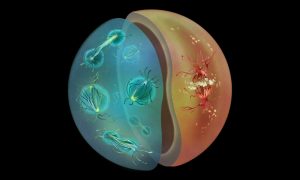
New research by EMBL scientists shows how different modes of cell division used by animals and fungi might have evolved to support diverse life cycles.
SCIENCE & TECHNOLOGY2024
science-technology
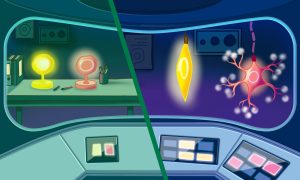
New research from EMBL Heidelberg shows how cells in developing embryos undergo a major shift in the way they regulate gene expression as they mature and differentiate.
SCIENCE & TECHNOLOGY2024
sciencescience-technology
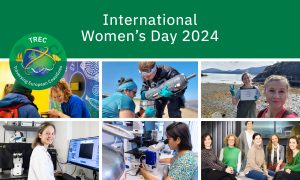
On International Women’s Day 2024, we hear from some of the women who have been working tirelessly in the field and behind the scenes as part of the Traversing European Coastlines (TREC) expedition.
LAB MATTERSPEOPLE & PERSPECTIVES2024
lab-matterspeople-perspectives

Simone Heber talks about studying RNA transport, organising the Bike Club at EMBL, and participating in the Ironman World Championship.
LAB MATTERSPEOPLE & PERSPECTIVES2024
lab-matterspeople-perspectives
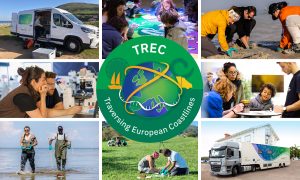
The Traversing European Coastlines (TREC) expedition prepares to begin its next phase of sampling, with stops in Spain, Greece, Italy, and beyond.
SCIENCE & TECHNOLOGY2024
sciencescience-technology

Alba Diz-Muñoz and Arnaud Krebs from EMBL Heidelberg have received grants to work on projects that aim, respectively, to understand the cellular mechanics that control cell division and investigate the regulatory networks that govern transcription factor function.
EMBL ANNOUNCEMENTSLAB MATTERS2023
embl-announcementslab-matters

The newest issue of our online magazine dives deep into a critical research direction in developmental biology, structures of promiscuous proteins, EMBL’s newest service offerings in field research, and much, much more.
EMBL ANNOUNCEMENTSLAB MATTERS2023
embl-announcementslab-matters

With the new advanced mobile laboratory, EMBL is taking its service offerings to new heights, bringing cutting-edge life science technologies to the field in a way never seen before.
EMBLetc2023

Baubak Bajoghli, Director of Austrian Bioimaging/CMI, discusses his passion for imaging and his work straddling basic and applied research in biology.
EMBLetc2023

Jan Kosinski, Julia Mahamid, and Georg Zeller have received grants to enable ambitious projects aimed at mapping the cellular protein synthesis machinery in context and understanding complex host-microbiome interactions, respectively.
EMBL ANNOUNCEMENTS2023
embl-announcementsscience
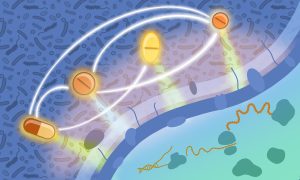
In an extensive investigation, EMBL researchers have tested over 10,000 drug combinations against some of the leading pathogenic bacteria carrying antimicrobial resistance and causing mortality.
SCIENCE & TECHNOLOGY2023
sciencescience-technology
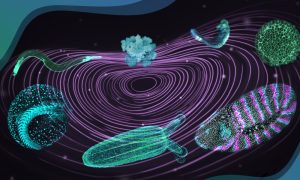
A two-week practical course introduced participants to the intricacies of studying the dynamic interplay between organisms and their changing environment and how it impacts development and evolution.
LAB MATTERSSCIENCE & TECHNOLOGY2023
lab-mattersscience-technology
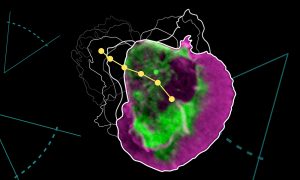
EMBL researchers have identified a novel mechanism that allows cells to sense obstacles in their path and avoid them while navigating complex environments.
SCIENCE & TECHNOLOGY2023
sciencescience-technology

Ukrainian scientist Sergiy Avilov uses the microscopy skills and scientific network he built at EMBL in his current role heading the Imaging Facility at the Max Planck Institute of Immunobiology and Epigenetics.
PEOPLE & PERSPECTIVES2023
alumnipeople-perspectives
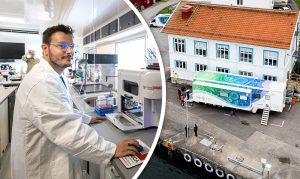
EMBL’s newly deployed Advanced Mobile Laboratory (AML) is bringing cutting-edge technologies to the European coast to help researchers study ‘life in context’.
LAB MATTERSSCIENCE & TECHNOLOGY2023
lab-mattersscience-technology

EMBL organised a five-day summer school to help PhD students and postdocs learn more about research and development (R&D) related industry career roles.
LAB MATTERS2023
eventslab-matters
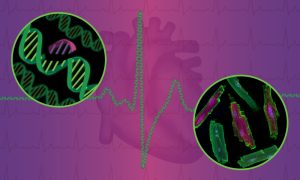
EMBL researchers have made new strides into understanding and reversing genetic defects that underlie familial heart disease.
SCIENCE & TECHNOLOGY2023
sciencescience-technology

EMBL researchers use a new cell sorting technology to gain new insights into cellular function in health and disease, as well as for other innovative applications.
SCIENCE & TECHNOLOGY2023
sciencescience-technology
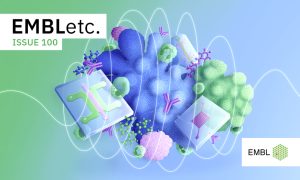
First published in 1999 as a black-and-white printed newsletter for EMBL staff and alumni, EMBLetc. has undergone many transformations in its 24 years of existence.
EMBL ANNOUNCEMENTSLAB MATTERS2023
embl-announcementslab-matters

First published in 1999 as a black-and-white printed newsletter for EMBL staff and alumni, EMBLetc. has undergone many transformations in its 24 years of existence.
EMBLetc2023

EMBLetc., the online magazine of Europe’s life sciences laboratory, celebrates its 24th birthday with its 100th issue. We took a walk through the past issues of this dynamic publication, and here are 10 recurring themes that emerged.
EMBLetc2023
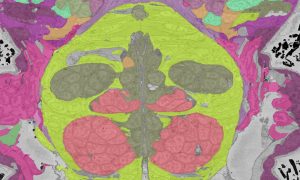
EMBL researchers are pushing the frontiers of big data analysis in biological imaging, allowing scientists to gain a many-layered and multidimensional view of organisms, tissues, and cells in action.
EMBLetc2023

EMBL’s newest expedition attempts to answer some of the biggest questions in planetary biology, and will help scientists find solutions to pressing global concerns.
EMBLetc2023
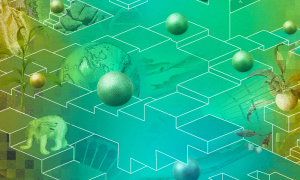
EMBL’s upcoming Science & Society conference takes a deep dive into the ethical considerations surrounding the use of technology and organoids in life science research.
EMBLetc2023
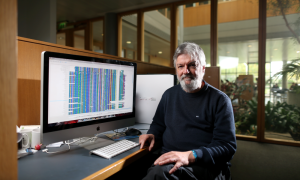
Desmond Higgins, 2023 Lennart Philipson Award winner, discusses his time at EMBL and his research developing sequence alignment tools.
EMBLetc2023
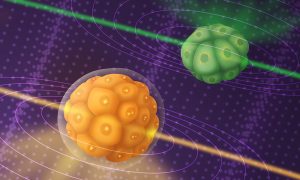
A new microscope built by EMBL researchers, based on Brillouin scattering principles, allows scientists to observe the dynamics of mechanical properties inside developing embryos in real time.
LAB MATTERSSCIENCE & TECHNOLOGY2023
lab-matterssciencescience-technology

New group leader Thomas Quail studies the fundamental processes that determine how proteins organise the genome inside a cell.
LAB MATTERSPEOPLE & PERSPECTIVES2023
lab-matterspeople-perspectives

In a first-of-its-kind study, EMBL researchers have shown how DNA methylation across the genome contributes to the precise regulation of gene expression.
2023
science
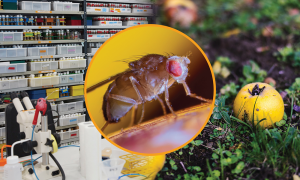
EMBL researchers are stepping outside the lab and thinking outside the box to understand the basic principles that underlie the development and evolution of organismal characteristics.
2023
science
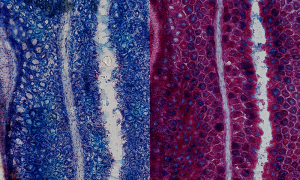
Mucus present in the mouse colon can be visualised using Alcian blue staining, as imaged here by EMBL predoctoral fellow Linda Decker.
LAB MATTERSSCIENCE & TECHNOLOGY2023
lab-matterspicture-of-the-weekscience-technology

The Director General of EMBL was elected by her peers to become a member of one of France’s oldest national science academies.
EMBL ANNOUNCEMENTSLAB MATTERS2022
embl-announcementslab-matters

The biannual magazine that highlights EMBL’s research, people, and projects now has a new online home.
EMBL ANNOUNCEMENTSLAB MATTERS2022
embl-announcementslab-matters
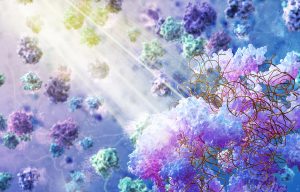
Researchers have observed the inner workings of an unusual bacteria at an unprecedented level of detail.
EMBLetc2022

EMBL researchers conducted a pilot project in Iceland as the final preparatory step before commencing their journey traversing European coastlines.
EMBLetc2022
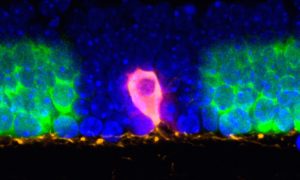
Researchers have combined advanced light microscopy with next-generation sequencing to create a method to study cells directly in the context of their native tissues
2022
science
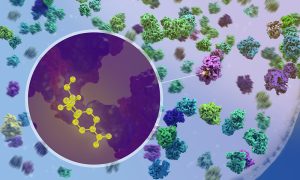
New research by EMBL scientists shows at atomic detail how antibiotics affect the process of protein production inside bacteria.
SCIENCE & TECHNOLOGY2022
sciencescience-technology
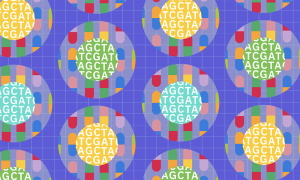
Researchers have come up with a way to test the efficacy of hundreds of anticancer drug combinations – simultaneously, rapidly, and accurately.
SCIENCE & TECHNOLOGY2022
sciencescience-technology

EMBL researchers used data from over 300 human faecal microbiota transplants to gain an ecological understanding of what happens when two gut microbiomes clash.
SCIENCE & TECHNOLOGY2022
sciencescience-technology
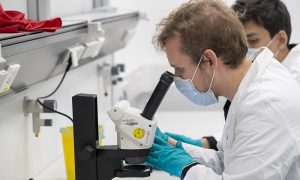
The EMBL Lautenschläger summer school, held 4–15 Jul 2022, introduced students from a range of scientific backgrounds to interdisciplinary life science research.
LAB MATTERS2022
eventslab-matters

Pascale Cossart, one of the world’s foremost authorities on the biology of Listeria, brings four decades of expertise in intracellular bacterial parasitism to EMBL as a visiting scientist.
LAB MATTERSPEOPLE & PERSPECTIVES2022
lab-matterspeople-perspectives
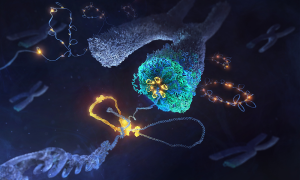
Researchers have discovered the mechanism by which a family of DNA motor proteins packages loosely arranged strands of DNA into compact individual chromosomes during cell division.
SCIENCE & TECHNOLOGY2022
sciencescience-technology

A recent study by EMBL researchers proposes a new method to grow early embryos in the laboratory. With a 3D culture set-up, scientists can closely monitor the changes embryos undergo around the time of implantation.
SCIENCE & TECHNOLOGY2022
sciencescience-technology
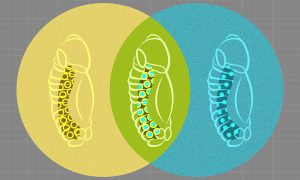
Researchers from the Furlong group at EMBL have come up with a way to observe the development of fruit-fly embryos simultaneously at the genetic and cellular levels, generating a high-resolution and integrated view of how different cell lineages form.
SCIENCE & TECHNOLOGY2022
sciencescience-technology
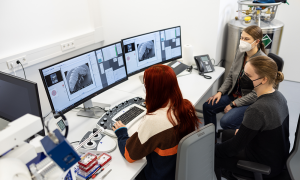
The new EMBL Imaging Centre held its first on-site training workshop, introducing undergraduate students to the basics of volume electron microscopy. This marks the first of many opportunities to aid capacity-building in imaging techniques in Europe.
LAB MATTERS2022
lab-matters

EMBL researchers, in collaboration with BD Biosciences, have demonstrated a new technology that allows rapid image-based sorting of cells. The new technology represents a major upgrade to flow cytometry and has applications in diverse life science fields.
SCIENCE & TECHNOLOGY2022
sciencescience-technology

Researchers studying a massive cohort of European patients have found that commonly prescribed drugs for cardiometabolic disorders can have long-term effects on the gut microbiome. Such effects can complicate the understanding of how disease affects the microbiome and must be taken into…
SCIENCE & TECHNOLOGY2021
sciencescience-technology
No matching posts found